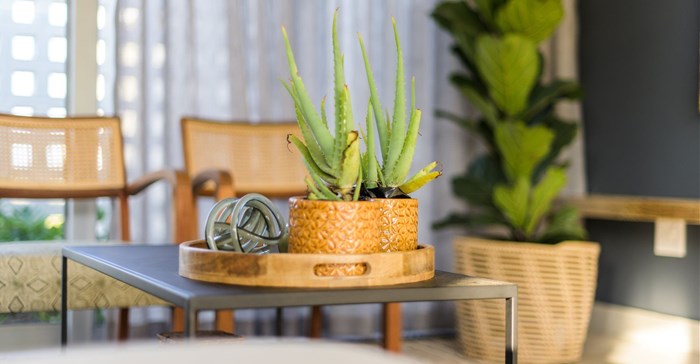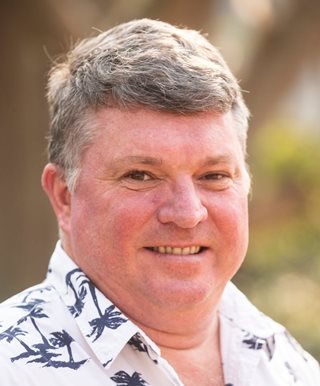Amidst the challenges of load shedding and essential-services access, the property sector increasingly prioritises sustainability. Recognising nature's impact on wellbeing fuels this vital shift.

Source: Supplied.
In a Rainmaker Marketing Key to Property podcast, Geoff Perkins - head of residential projects at Collins Residential - discusses the latest trends and shares his insights on the sustainable initiatives implemented at its KZN North Coast developments and how homeowners could potentially adopt these as long-term solutions to their daily problems being faced.

Source: Supplied. Geoff Perkins, head of residential projects at Collins Residential.
“There are a few key points that people should be aware of when it comes to off-grid solutions. The initial investment for retrofitting can be significant, although long-term savings on energy bills can offset this.
“Proper planning, assessment, and professional guidance are essential to ensure compatibility with existing systems and to maximise efficiency. It’s also crucial to understand local regulations, permits, and potential incentives for renewable energy installations. Regular maintenance of the systems is important to ensure optimal performance and longevity,” says Perkins.
Perkins emphasises the importance of incorporating sustainable elements in the property design process and the significance of this approach for developers. Integrating sustainable elements before construction reduces environmental impact, lowers long-term costs, improves occupants' wellbeing, and aligns with market demands.
By considering factors such as energy efficiency, water management, and material selection during the design phase, developers can minimise the carbon footprint and resource consumption of their projects.
Water and energy alternatives
Addressing water-related off-the-grid solutions, Perkins highlights rainwater harvesting as a practical option.This method involves collecting rainwater from roofs or other surfaces and storing it for various uses, such as irrigation, toilet flushing, or laundry.
Rainwater-harvesting systems range from simple rain barrels to more complex setups with filtration and storage tanks. At Lalela Estate, all homes are equipped with water-harvesting tanks, promoting water conservation and self-sufficiency.
Solar panels emerged as a viable and accessible option, particularly at Lalela Estate, where homes are inverter-ready and suitable for solar panel installation. Additionally, incorporating gas hobs and stoves can be retrofitted into most homes after construction, providing alternative energy solutions.
“Some common sustainable options for power and electricity include solar panels, energy-efficient appliances and lighting, and smart energy-management systems. Off-the-grid solutions, such as solar-power systems with battery storage, enable homeowners to generate and store their electricity independently. For example, at Zululami Luxury Coastal Estate, excess solar power is fed back into a micro-grid that reduces the draw off the national grid and accumulates credits for the homeowner,” says Perkins.
Collins Residential also prioritises environmental rehabilitation, tree planting, and the creation of biomes, wetlands, and nature trails within its developments. It believes in developing entire ecosystems and environments, ensuring a residential setting that thrives with biodiversity and draws inspiration from nature.
Perkins expanded on the broader concept of incorporating sustainability into homes and lives, beyond just the physical aspects. This includes eco-friendly construction, access to green areas, walking trails, and biking routes.
As sustainability increasingly takes centrestage, Collins Residential sets an example with its commitment to integrating sustainable elements into property design. With a vision that encompasses nature conservation, energy efficiency, and the overall wellbeing of residents, its developments on the KZN North Coast provide an exciting blueprint for sustainable living.

































